
Leaders and Experts Debate Relevance of Constitution Amendment

Prominent political leaders and legal experts aired differing views on the need for constitutional amendments during a dialogue titled “Constitution Amendment: Regression or Progression”, organized by Rato Jhilko Magazine in Kathmandu.
Former Prime Minister Dr. Baburam Bhattarai advocated for a directly elected presidential system, suggesting it would foster political stability in Nepal. He also proposed making the House of Representatives and Provincial Assemblies fully proportional, emphasizing that both the content and procedure of constitutional amendments must be addressed through dialogue.
However, former Chief Justice Sushila Karki highlighted the nascent stage of the constitution, which has completed just nine years since its promulgation. She expressed skepticism about amendments at this stage, arguing that the constitution has not been fully implemented or tested. “Despite some linguistic inconsistencies, the constitution is sufficient in terms of content,” Karki remarked, underscoring the need for political morality in its application.
Nepali Congress leader NP Saud emphasized that democracy should be practiced as a way of life. He pointed out that the absence of legal provisions in the constitution has raised questions about its functionality.
CPN (Maoist Centre) leader Rekha Sharma acknowledged the constitution’s progressive nature but stressed the importance of identifying and addressing factors contributing to political instability before initiating amendments.
CPN (UML) leader Dr. Binda Pandey referred to the constitution as a dynamic document, affirming its capacity for amendments to meet the evolving needs of the nation.
Rastriya Swatantra Party (RSP) Acting Spokesperson Manish Jha cautioned against using constitutional amendments as political tools. He noted that the RSP would support amendments aligned with its political agenda and procedures.
The event also marked the release of the 16th edition of Rato Jhilko, which features perspectives from experts such as UML leader Pradeep Gyawali, Janamat Party Chair C.K. Raut, and human rights activists Meena Paudel, JB Bishwakarma, and Jyoti Danuwar.
While opinions varied, the dialogue underscored the constitution’s role as a living document and the need for a balanced approach to amendments that reflect the nation’s aspirations for progress and stability.
- PM Oli Inspects ‘Sagarmatha Sambaad’ Secretariat, Calls for Streamlined Preparations
- Nepal Secures Six-Wicket Victory Over Hong Kong in Women’s T20 Cricket
- CPN-UML to Hold Central Secretariat Meeting on March 17
- Nepal’s Environment Minister Shahi Urges Global Action on Climate Change at UK Roundtable
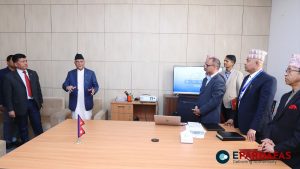
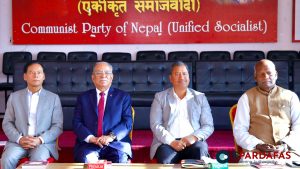
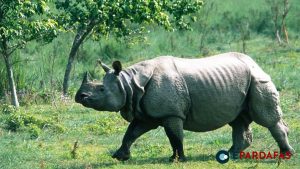

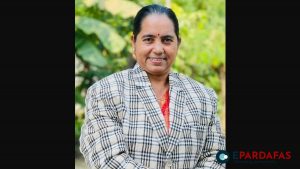
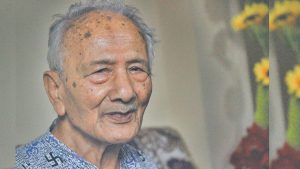
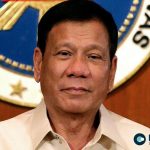

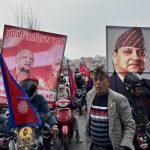
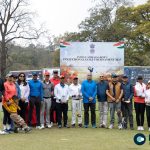
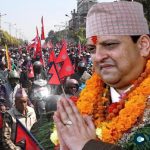
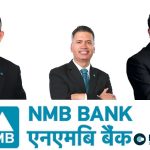
Comments